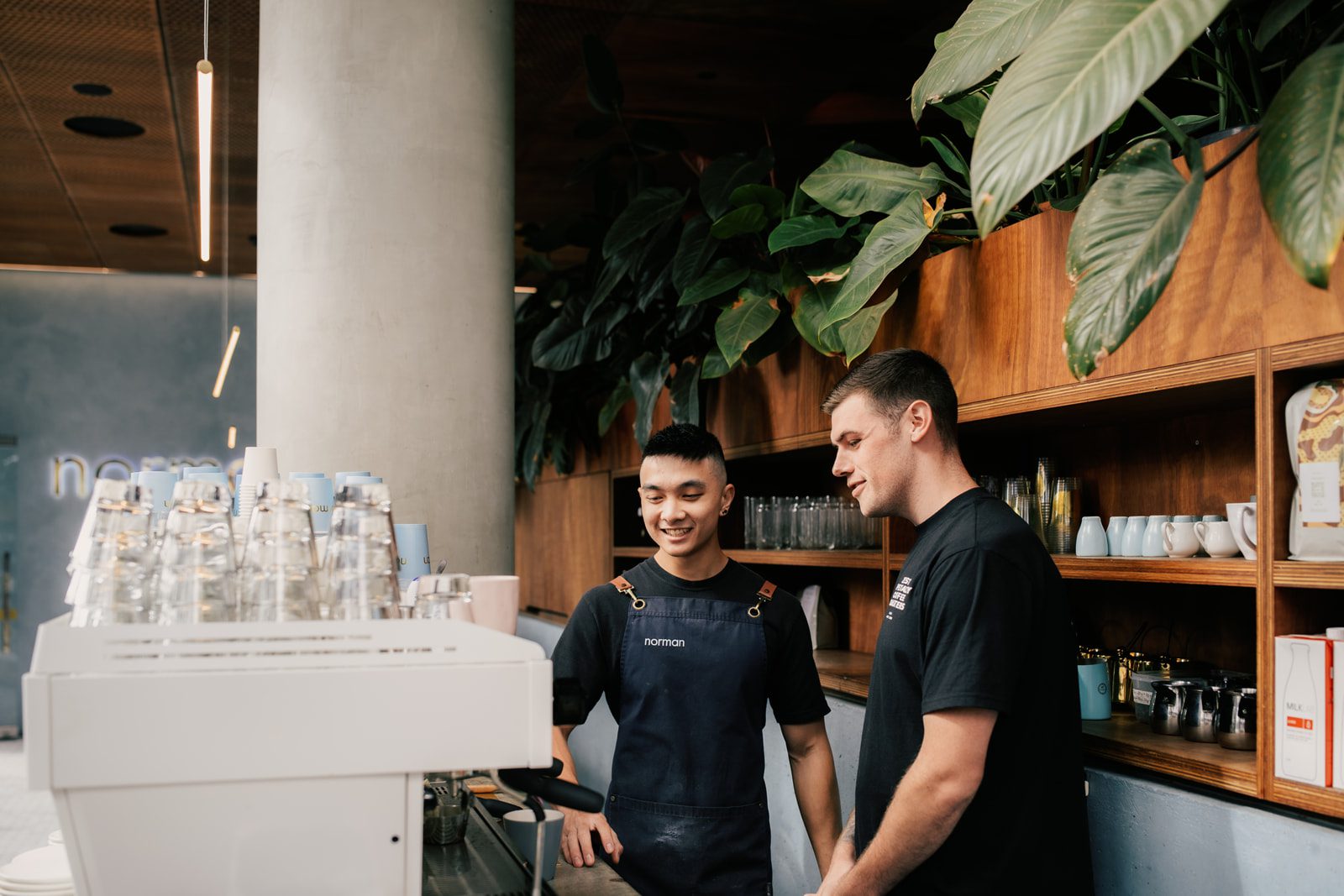


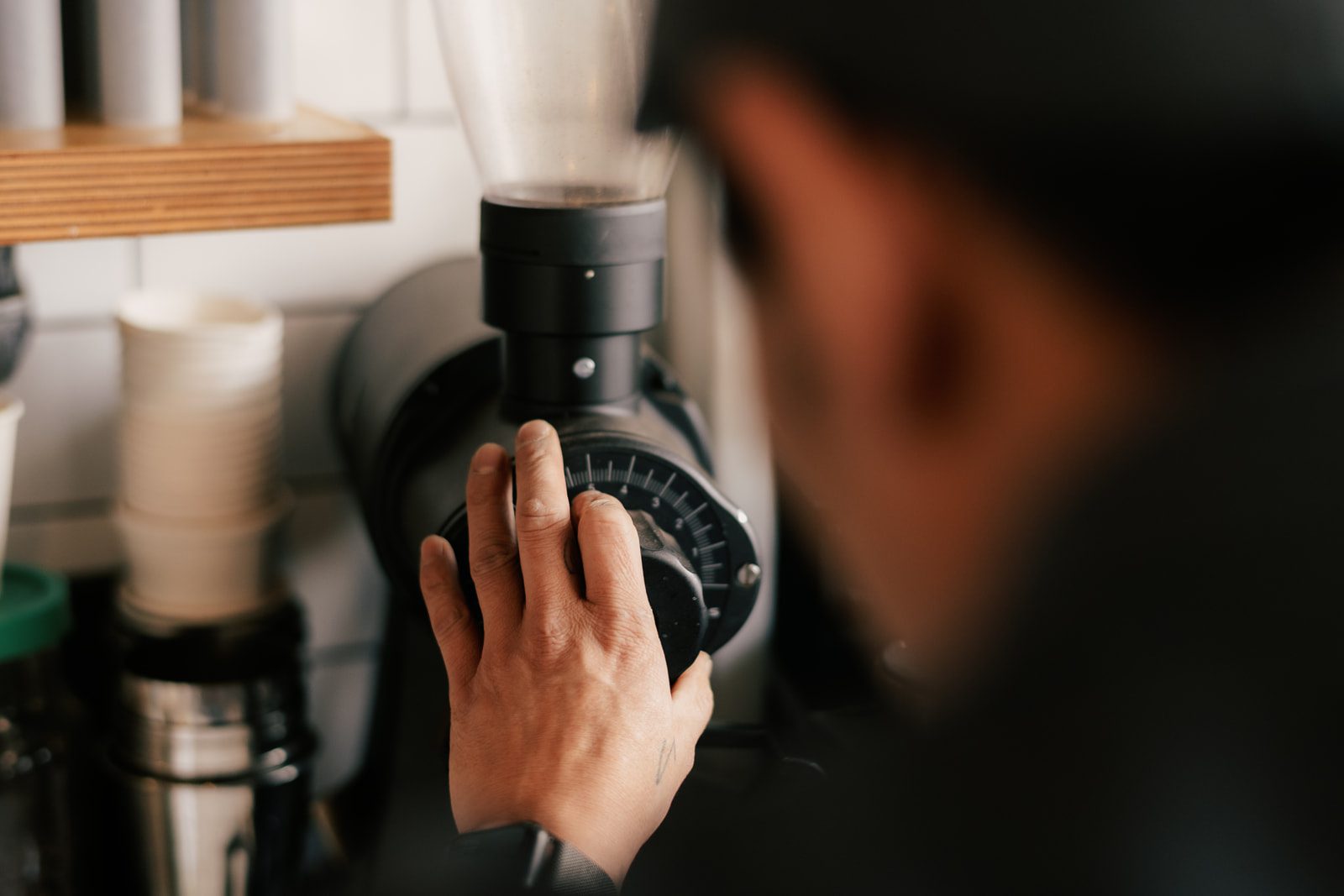
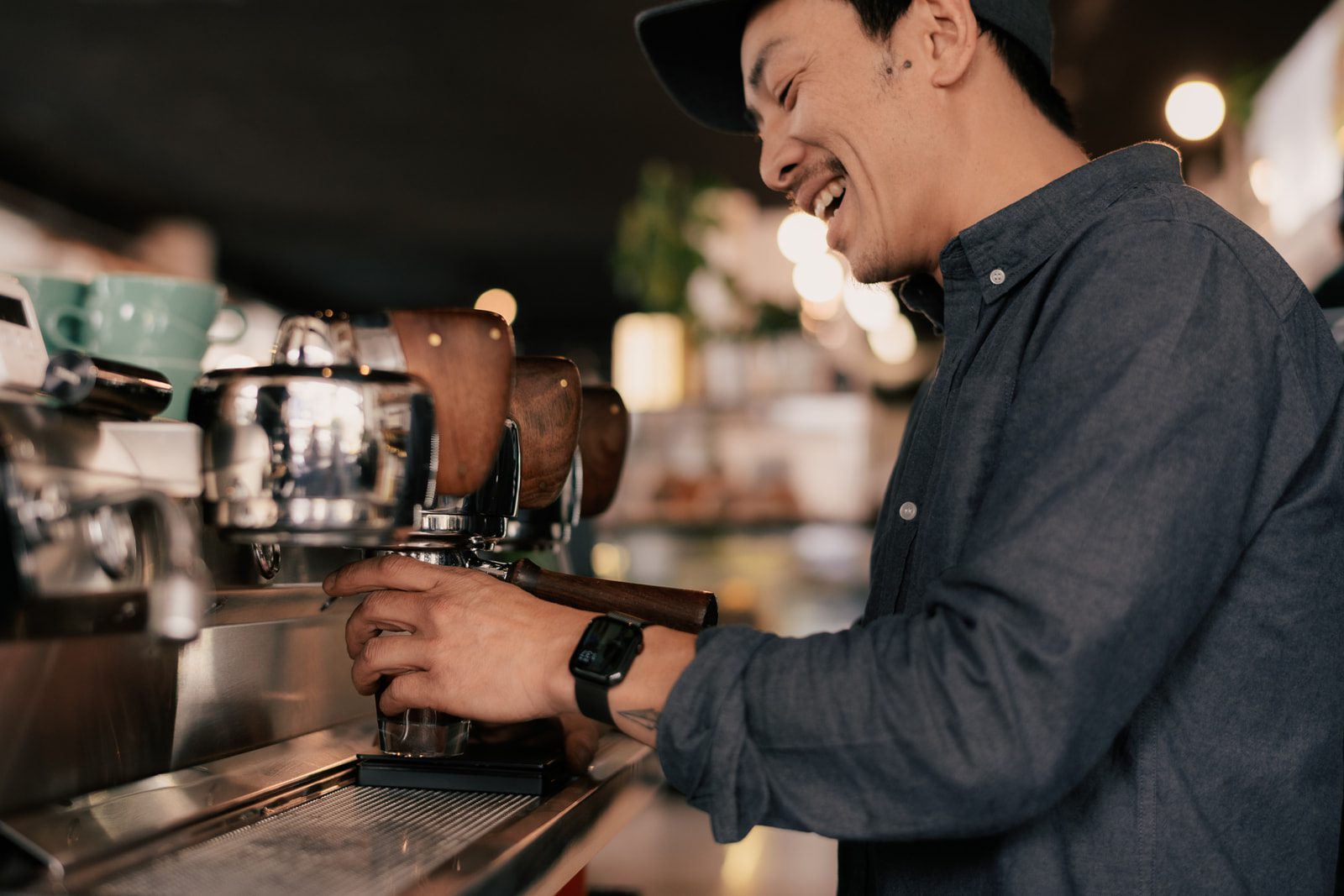


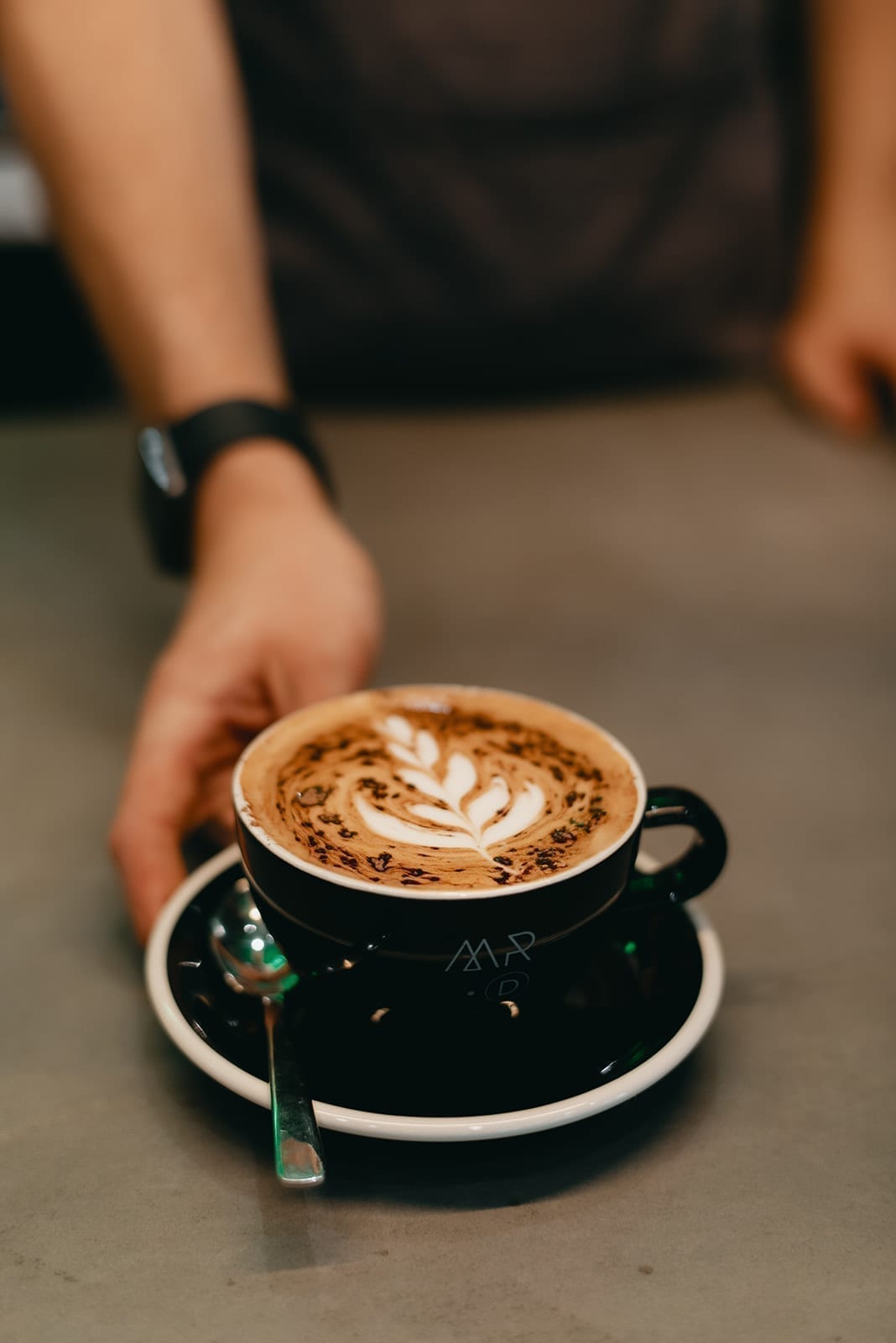
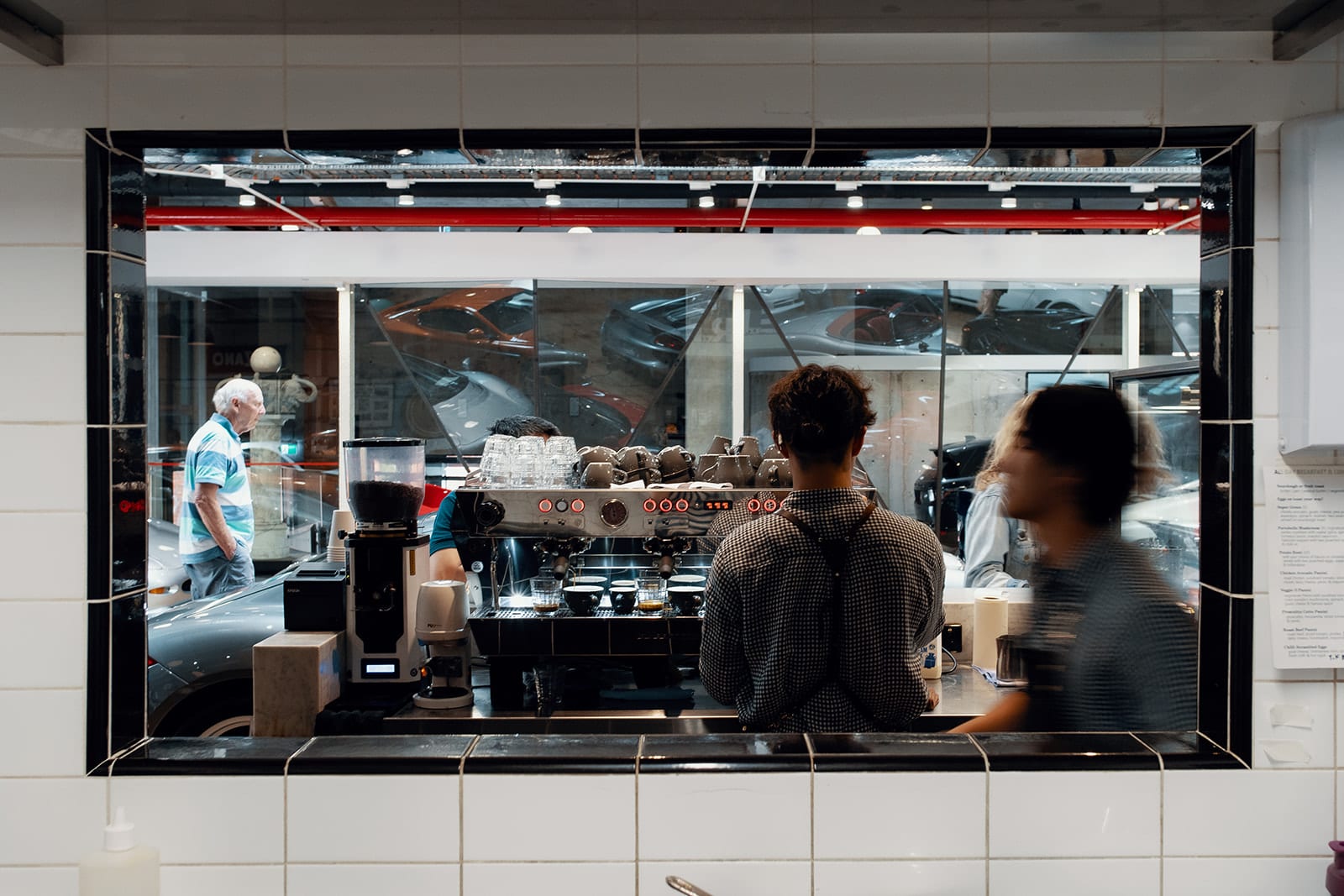

Do You Need Training To Be A Barista?



Let’s face it: Melbournians have sorta become coffee snobs. We like our coffee.
Like… a lot.
So much so that we’ve earned the reputation for being the coffee capital of the world. While this is great for business, it can also be challenging: customers have come to expect a certain standard of coffee, and have a handful of options to choose from if their expectations are not met.
A subpar coffee just doesn’t cut it anymore, especially when there’s a good enough substitute down the road. Increased competition, price increases and a generally high standard has made customers very critical of every trip they make to a cafe.
This puts a lot of pressure on the barista. Customers don’t have the patience or motivation to give cafes a second chance if they have a bad experience. Nowadays, there are no three strikes — you get just one. Fail to meet the expectations of a first timer and you’re out. The importance of barista training in Melbourne, and in general for that matter cannot be overstated in such a competitive and critical market where every dollar spent makes a huge difference on the bottom line.
Being a barista is a huge responsibility, and hiring the right one is equally as important. In this blog post, we’ll cover why barista training is important for both the barista and business owner. We’ll also go over where and how to get barista training.
What is barista training?
Barista training is about equipping baristas with the necessary knowledge and skills to serve coffee at a consistent high standard and with a good attitude. This involves teaching baristas the basics and importance of customer service, espresso, milk preparation, latte art and other accessory skills.
A huge part of a barista’s job is customer service. Serving customers with enthusiasm and vigour is a key part of the cafe experience. This is recognised by even the most accomplished hospitality professionals and baristas, so we cannot ignore the value in good service.
There are various levels of training: basic, intermediate and advanced barista training. We prefer to call these pathways because we feel they build on each other for continuous skill development. We offer multiple pathways that focus on teaching baristas everything involved in the whole process from bean to cup. You can find out a little more about this by flipping through our introduction to espresso barista training booklet.
The end goal of barista training is to blend all these skills together to develop skilled coffee professionals that are able to interact with customers, work confidently behind a machine and add value wherever they go.
Why is barista training important?
You wouldn’t expect a builder to know how to build a house without the right training. It probably wouldn’t be impossible, but eventually cracks would start to show and the builder would develop bad habits and lose credibility.
The same applies for baristas.
Training is a vital tool in any industry and any workplace, but in the cafe world, where a barista’s attitude and ability directly impacts on the customer experience (and the business owners wallet), effective barista training is crucial to ensuring success.
Barista training isn’t only important for baristas, but for businesses too. Here’s why.
Why barista training is important for cafe owners.
We like to think of training as providing a strong foundation for baristas, while practice and experience build on this structure to create capable staff. It’s an investment that can make or break a business, especially when hiring new staff. Experienced baristas pass on their knowledge to rookie baristas, and unfortunately, that includes bad habits and incorrect teachings.
Our goal as business owners is to establish a firm financial position. In most cases, this is achieved by building a consistent revenue stream. It’s simple: consistent customers means consistent cash flow.
Building a sustainable coffee business starts with serving a quality product. Our head barista trainer Damon puts it best: “Good quality coffee that is consistently good builds a cult following for a cafe. It gives patrons the confidence to invite friends and share their experiences with other people.” Hiring a trained, qualified barista that completed a barista training course helps establish consistency and assures customers that their investment is worthwhile, resulting in consistent customers and a stable cash flow.
Baristas need direction. Learning through trial and error can be a very expensive procedure that can result in not only customers being lost, but the reputation of the business being severely damaged. Barista training courses provide the direction baristas need.
Give customers a reason to come back Every. Single. Time. Turn one strike into no strikes. Invest in the best barista training course and your short-term investments will generate positive returns as you hire new staff and grow your business.
Barista training also provides baristas with social skills, through barista customer service training, that can make customers feel more comfortable and improve their experience of a cafe. Being a barista is more than just pouring lattes and extracting espresso shots. As Damon likes to say: “Good baristas need to be great communicators, outgoing, professional. They must have a high level of emotional intelligence that recognises the mood and personality of their individual clients and links on with it in a way that builds a long lasting relationship. Coffee is more than just a beverage. Coffee is communication. Coffee is a social outing during the day. Buying a coffee should make a customer feel good and brighten up their day.”
Coffee is a step in the door for most customers; serving good coffee consistently, and treating customers well will encourage them to come back and spend a little more time in the cafe which can result in increased profitability.
Barista training can also help retain staff. Customers form relationships with staff members so it works in your favour to try and hold onto staff members. Barista training adds value and can result in baristas sticking around for a little longer.
Investing in barista training is good for a business long term. It provides business owners with the assurance that their reputation and business is being handled by a professional. As your baristas upskill, your business and coffee menu follows suit. Advanced barista training gives baristas the knowledge to help business owners expand their coffee menu.
Another advantage about investing in Melbourne barista training is that it can make your staff more efficient. Melbourne is a busy city, and the standard for making coffee in Melbourne is high, so investing in barista training in Melbourne can result in higher quality and time poor customers choosing your cafe over a competitor.
We love what Richard Brandson says: “It’s all about finding and hiring people smarter than you. Getting them to join your business. And giving them good work. Then getting out of their way. And trusting them. You have to get out of the way so YOU can focus on the bigger vision. That’s important. And here’s the main thing….you must make them see their work as a MISSION.’
Why barista training is important for baristas.
The end goal of barista training is to produce better baristas. Coffee always involves collaboration. Our barista training classes are designed to share the knowledge, skills and processes needed to understand and serve coffee to customers that tastes delicious, looks good and makes a customer feel good every single time.
Here’s the thing: there’s always someone out there who knows a little more than you do. The information and knowledge gained from working behind a machine, watching videos or reading articles can sometimes be limited, inaccurate and not relevant to the market you might find yourself working in. Barista training courses leverage the experience of industry professionals to give aspiring baristas the opportunity to get the required knowledge, technical and personal skills to serve coffee at the highest level.
Our advanced barista training course provides baristas with the opportunity to book a private barista training session where they can get industry insights, ask questions and get feedback from long-term industry professionals in a constructive environment. As they say, “better than the young man’s knowledge is the old man’s experience.” Barista training makes the knowledge and experience of the Godfathers of Coffee accessible.
As we’ve mentioned before, being a barista extends beyond just the technical aspects. Customer service is absolutely essential to being a good barista. A barista’s job — both in coffee and communication — is to make their customers feel good. After all, customers remember a bad experience much more than they do a good one.
2014 World Barista Champion Hidenori Izaki illustrates how good customer service makes people feel happy: “it’s like trying to make the customer think coffee is worth much more than what they usually think. Let’s say if you go to a cafe, with very good quality, but very poor service. I think you would be disappointed. But there’s a cafe that serves so-so coffee, but their service is great. Which cafe would you like to go to?”
I think our customers definitely know the answer to that one.
Having technical skills is one thing, but having both technical and personal skills makes for a complete barista. Professional barista training provides the opportunity to round out your skills and become more than just someone who pours lattes and extracts espresso shots.
How to get barista training?
Our goal as a specialty coffee roaster is to share our love for coffee with as many people as we can. We feel that one of the best ways to do this is to help more people love coffee as much as we do. We have recently expanded our barista training by adding an invaluable resource in experienced barista trainer and espresso bar owner, Damon Schmetzer. Whether you need espresso or barista latte art training, get in touch with us via our contact page and we’ll point you in the right direction.
Where to get barista training?
You guessed it folks: there’s no place to get barista training like Zest Specialty Coffee Roasters. We’ll get you pulling the tastiest spro’s in just a couple of hours.
To answer the original question: no, you do not need training to be a barista. But to give yourself the best chance of making it as someone’s favourite coffee spot, we strongly recommend barista training for both a business owner and barista.